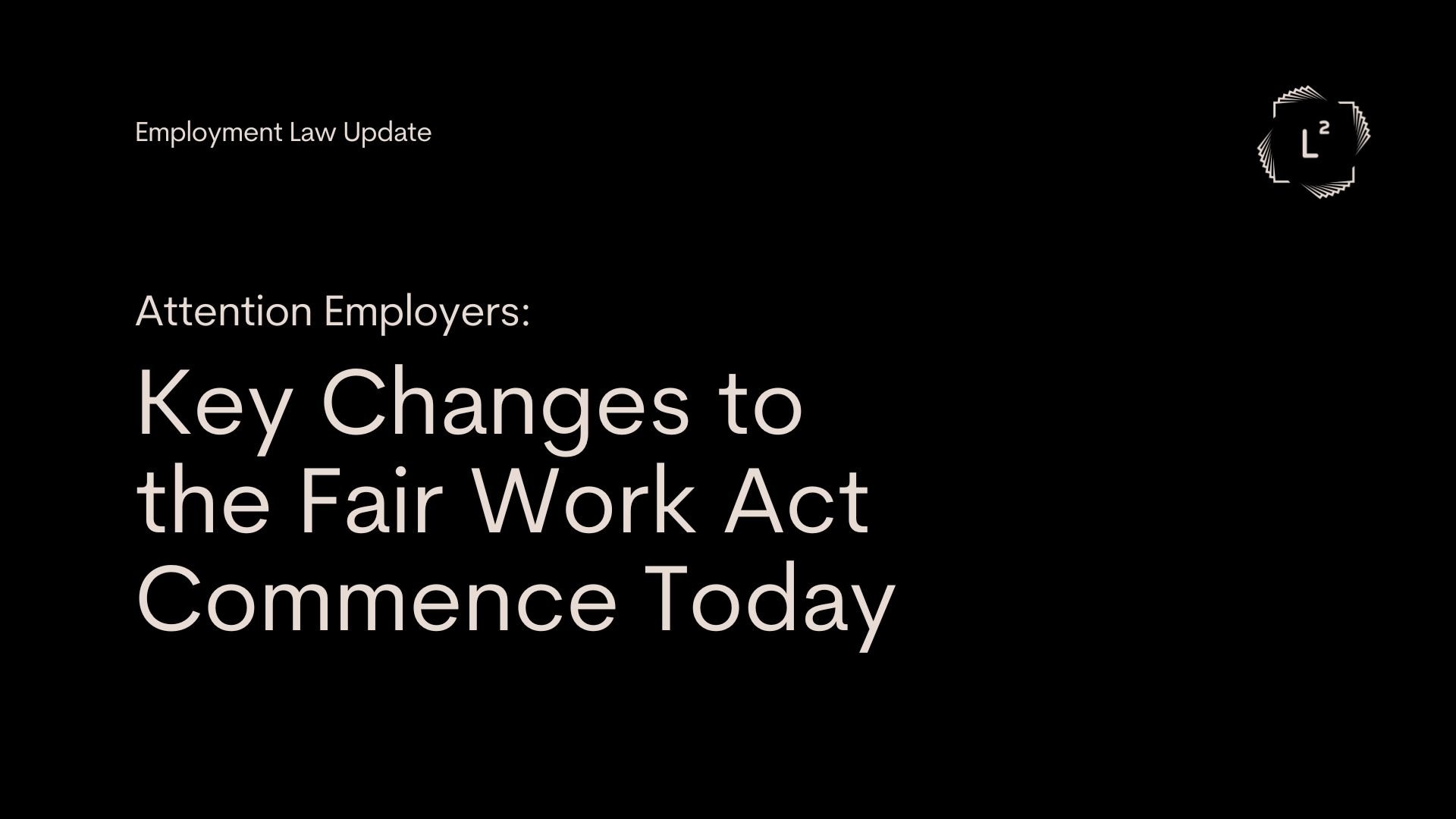Changes to the Fair Work Act Now in Force
Attention employers!! Important changes to The Fair Work Legislation Amendment (Closing Loopholes No.2) Act 2024 (Cth) (the FWA) came into effect this month on 26 August, 2024. Here, we briefly summarise the changes that employers will now need to meet.
Earlier this year significant reforms to the FWA were passed, including the groundbreaking amendment – The Right to Disconnect. This and other changes are now in force and impact all non-small businesses (i.e. businesses that have more than 15 employees). Those organisation with less than 15 employees, have an additional 12 months before the changes apply.
Changes employers need to be aware of include:
Right to Disconnect is in force
Employees (except of SMEs, i.e. organisations with less than 15 employees) now have a right to refuse to monitor, read or respond to contact (or attempted contact) made outside their working hours unless that refusal is unreasonable. Contrary to what some people may think, it does not mean a blanket ban on contacting employees after hours, but is a formal departure from the traditional expectation that employees should be continuously available. Of the change, Employment + Workplace Relations lawyer, Andrew Brooks says: “These changes recognise the importance of work-life balance and acknowledges that employees should have the right to unwind without the constant intrusion of work-related communication. The changes aim at fostering a healthier and more sustainable work environment.”
Employers are encouraged to educate themselves of this change, and to carry out a review of their contracts and policies to ensure compliance and best practice. Download our Right to Disconnect Policy template here or catch up on our Right to Disconnect Webcast here.
New definition of 'employee' inserted into the FWA
To determine whether someone is an independent contractor or an employee, there must now be an assessment of the “real substance, practical reality and true nature of the relationship” between the parties. This is different from the original common law position which solely looked at the terms of the employment contract to ascertain the relationship.
New definition inserted in relation to casual employees
An employee will now be defined as a 'casual employee' if under their employment relationship, there is “an absence of a firm advance commitment to continuing and indefinite work, and the employee is entitled to a casual loading”.
Independent contractors can now apply to the Fair Work Commission (FWC) in relation to unfair terms in their service contracts
The FWC will have some new functions allowing it to cancel or amend / vary unfair terms that relate to workplace relations matters in service contracts (i.e. a contract for services that relates to the performance of work by an independent contractor).
Introduction of minimum standards for some independent contractors in the gig economy
The FWC is able to set minimum standards for regulated workers (including employee-like workers (e.g. Uber drivers) and road transport contractors). The standards can be set in the form of minimum standards orders or minimum standard guidelines, and can cover topics such as payment terms, insurance, other work standards, etc.).
Our Employment + Workplace Relations team can provide you with practical guidance on how to navigate these and other looming changes to ensure you meet your obligations under the new laws. Please reach out to the team here.

